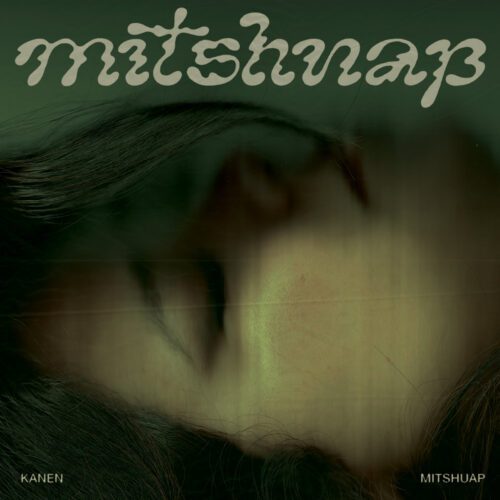Mitshuap (“house” in Innu-aimun) represents the beginning of a new era for singer-songwriter Karen Pinette Fontaine, aka Kanen. With Simon Walls and Jérémie Essiambre at her side, she is moving towards a more cavernous, gritty, and assertive alternative rock. However, she knows how to stay close to her roots, as much musically as thematically: songs with grilled guitars are mixed with others more stripped down, ukulele (or guitar) and voice formula. Identity quest, home, coldness of statistics and “artificial suns” of the city, these are some of the themes treated.
But not everything is grey. In fact, Mitshuap carries a quarrel between exhaustion and hope, it oscillates between two extremes. A twilight heaviness hangs over the tracks, both in terms of sound and lyrics. The album opens on a serious tone with Assi (Earth) and its atmosphere evoking an environmental post-apocalypse. The guitars of Tshekat (Almost) are languid, those of Nimueshtaten nete (I miss there) are hoarse, tired, but no less felt. Louis-Jean Cormier’s well-known voice blends in well. Sometimes, we leave the sorrows for a moment to look at the sky, admire the stars, the meteors, listen to the silence.
On this album, Kanen sings about ambivalence and anger, both in French and in the Innu language. Here, the private is political, and the two marry, flowing together from stream to stream to stream again. She sings for herself, but also for all the missing and forgotten Aboriginal women, for the people who demonstrate in the streets. She sings for a “big girl” who is as much her as anyone else, reassuring her, telling her that we can afford not to know everything. It is telling the other what we would have liked to be told, that there is still hope, attention, time.
Mitshuap, finally, is the house. Initially a question, the theme eventually asserts itself. Kanen shows that to say is to be said. She searches for herself and ends up finding, if not a clear answer, parcels of light, a few clues of clarity here and there, rare jewels of meaning that we collect in our identity piggy bank. But rather than keeping them to herself, she offers them generously in a strong, raw work, certain to touch many souls.
























